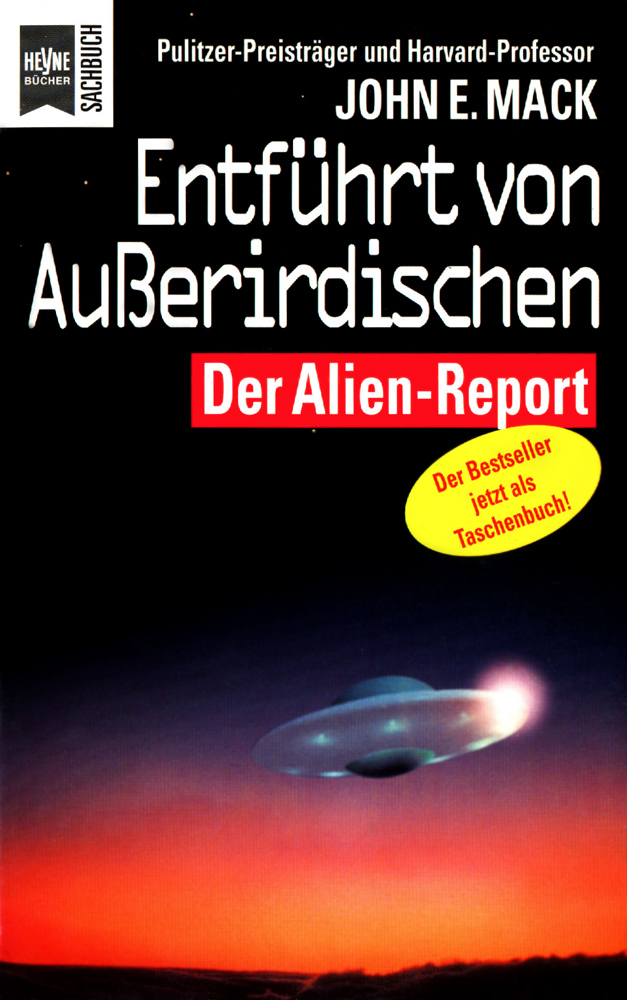March 11, 2021 – JEMI is pleased to announce that German translations of several articles on this website will be provided over the next few months by Patrik Hübner. A native German-speaker with an interest in this subject matter, Hübner is perfectly suited to providing these translations as his time allows. The translations will also be appearing on his blog. We are grateful for his volunteer service.
In advance of the first article, Hübner kindly provided a primer on how some common alien encounter terms appear in German.
“An abductee is entführter (male) and entführte (female),” derived from the term for the criminal abduction of people, “entführung (singular) and entführungen (plural),” Hübner explains.
John Mack’s 1994 book was published as “Entführt von Außerirdischen” – abduction by aliens, to draw a distinction.
Alternate terms have been tried, ones without a connection to criminal abduction.
For example, simply using the English word “abductee” is not unheard of.
Some Germanize the English words for abduction and abducted as abduktion and abduzierter.
“Those Germanized words have a foundation in Latin”, he notes (more about that in a moment), “and a modern meaning in physiology and philosophy, but, it comes across as unduly technical.”
 Abduction (German paperback)
Abduction (German paperback)
“The Latin origin,” he notes, “is abducere and has an additional connotation: to lead a subject away. This I found quite appropriate especially when I think of experiences with the Greys, and being escorted by them, like leaving your everyday reality and being led into their place.”
Absent any resurgence of the popularity of Latin root words, the terms commonly used for alien abductions will remain those used for criminal abductions.
“Experiencer” has a perfect translation.
“If you translate experience into German, you get erfahrung (singular) and erfahrungen (plural). So experiencer is translated as erfahrener (male) and erfahrene (female). It evokes that you’ve had some kind of experience and are now a step further along because of it – because the experience now fills and informs you.”
“You could also say erfahrender, which would be like you are in the process of experiencing something at the moment. But I’ve never seen it used.”
“Erfahrener seems to have established itself as the standard term for experiencer.”
Now available:
- Whitley Strieber interviewt John E. Mack, M.D. Abschrift eines Radiointerviews, das vom New York Times Bestseller-Autor Whitley Strieber am Sonntag, den 14. November 1999 anlässlich der Veröffentlichung von Dr. John Macks zweitem Buch über die Alien-Begegnungserfahrung, Passport to the Cosmos, durchgeführt wurde.
- Livechat mit Dr. John Mack auf SciFi.com Im Jahre 2002 organisierte der SciFi-Channel während der Promotion für die von Steven Spielberg produzierte Miniserie “Taken” auf seiner Webseite einen Livechat mit Dr. Mack.
- Außerirdische Erleuchtung: Ein Interview mit John Mack von David J. Brown, 1996.
- Aus den Randbereichen der Erfahrung: Das Konzept der Vermählung | Schwebend im Nebel | Eine Perle
- Roy Leonard interviewt John E. Mack, M.D., und einen “Experiencer”, 5. Mai 1994, in den Studios von WGN Chicago
We will make announcements here and on Facebook as new German translations are published.
You can always find all translated articles by clicking on the language options in the footer of the website (under “Translations of Website Articles”). Each has been been manually translated for greater accuracy. Thanks again to Patrik Hübner, Igura, and our past volunteers.
RELATED NOTE: Foreign publishers interested in translating Dr. Mack’s book Passport to the Cosmos, please contact info@johnemackinstitute.org.